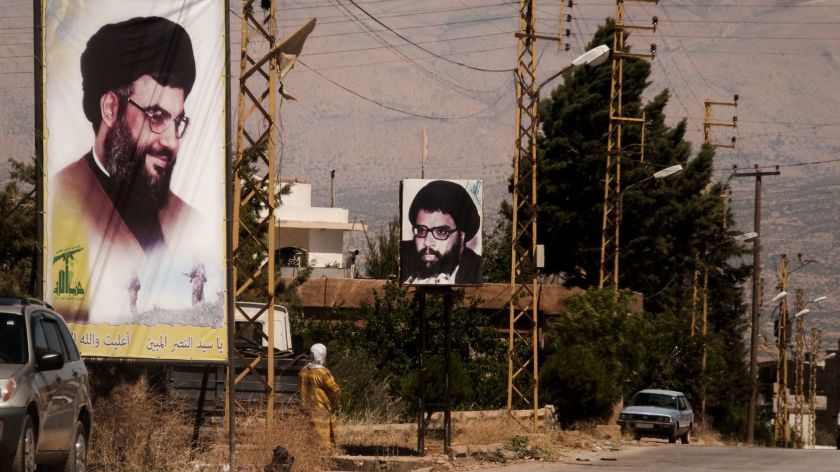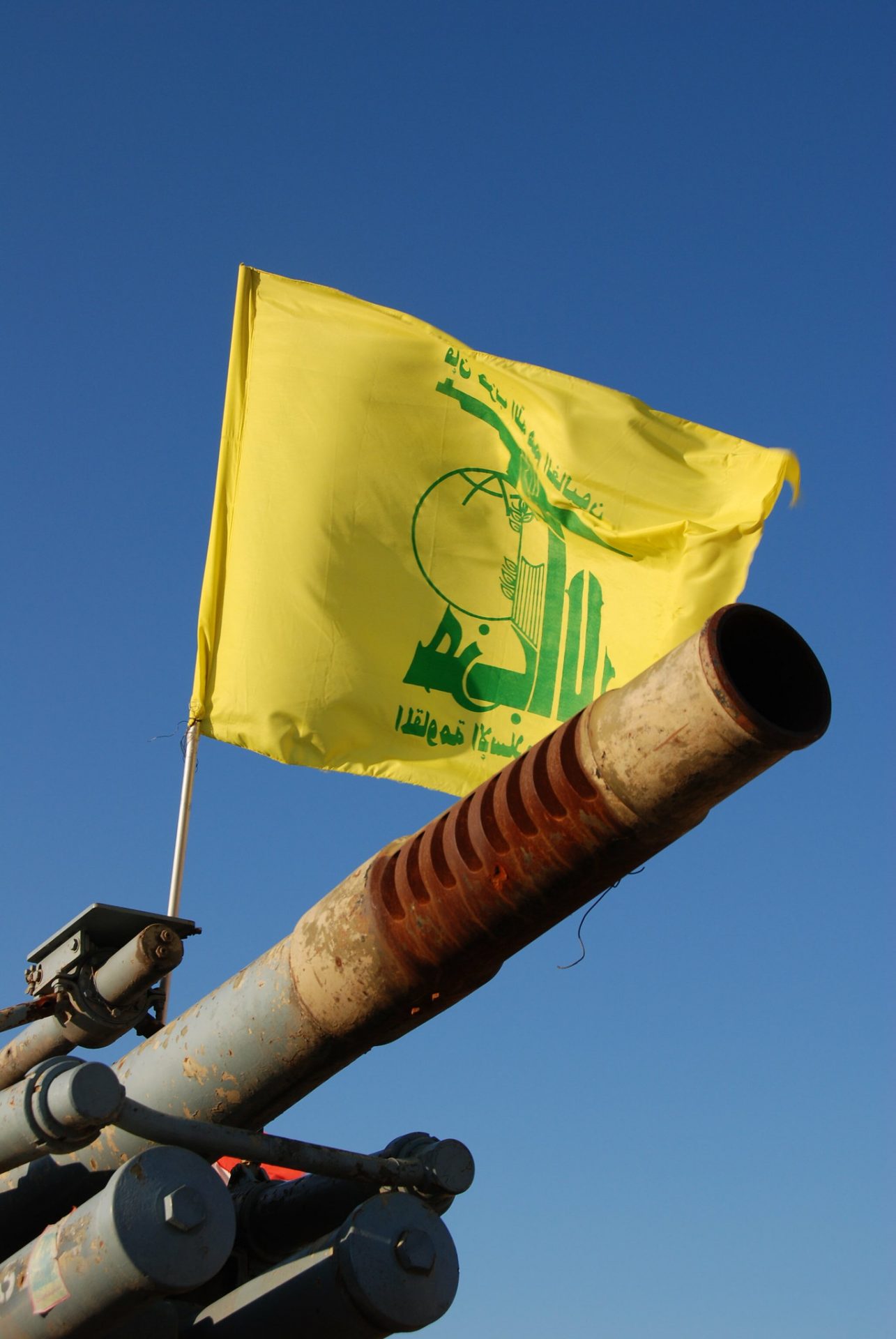Lebanon waits with bated breath: will Hezbollah plunge the country into another war?
-
 Straatbeeld in de omgeving van Baalbek, Zuid-Libanon. Foto: ninjawil (via Flickr)
Straatbeeld in de omgeving van Baalbek, Zuid-Libanon. Foto: ninjawil (via Flickr)
While the war in Gaza is ramping up, relations between Israel and Lebanon are tense as well. Hezbollah is currently in charge in Lebanon, and they have close ties to Hamas. Will Hezbollah go to war with their southern neighbour? Nora Stel, assistant professor at the Nijmegen Centre for International Conflict Analysis and Management (CICAM), is monitoring the developments.
Nora Stel was in Lebanon on October 7th, the day of the Hamas attacks in Israel. ‘Everyone around me was in shock. Nobody saw it coming, not even those actively tracking it, like the journalists and analysts.’
Stel was in Beirut to interview embassies and ministries for her research into the plight of Syrian refugees in the country. Everyone around her wants to know: what will the violence between Hamas and Israel mean for Lebanon? What will Hezbollah do?
Because of the tensions, Lebanese people have been anxious for weeks. Hassan Nasrallah, the leader of Hezbollah, will be giving a long-awaited speech at 15:00 on Friday afternoon; it is expected that the speech will clarify Hezbollah’s plans for the immediate future. Now back in Nijmegen, Stel talks about balancing act that Hezbollah finds itself in, as well as the Lebanese fears of a war on their own soil.
Many faces
According to Stel, to understand the circumstances, one first needs to ask: ‘what is Hezbollah?’ It’s a question with no simple answer. ‘Hezbollah has many different faces. They emerged in the eighties, during the Lebanon civil war which lasted from 1975 to 1990. They were both an armed resistance to the Israeli occupation of southern Lebanon, as well as an emancipation movement for the marginalised Shi’ite community in Lebanon. The military branch expanded greatly after the war, but it is not the only branch; they also have their own schools, media, and hospitals.’
Hezbollah’s military might should be viewed in that larger social context, as stated by Stel; for many people, Hezbollah is responsible for all their amenities and services. Lebanon is home to many such groups with their own social universe, though Hezbollah is by far the most successful. The country is incredibly segregated, but there is a national government, with strong Hezbollah representation. ‘They have a piece of every formal, public governmental institution, including parliament, the police, and the military. That’s the political side to the story. But they also have military, social, and economic branches which are separate.’
That military branch achieved a great victory in 2000 by driving out Israeli forces from the occupied south. ‘With that, they became the only Arab military force to successfully defeat Israel. This counters the historic trend: Israel keeps occupying more and more Palestinian territory, but in a broader sense also more territory from surrounding Arab countries.’ However, Stel does not mean to romanticise Hezbollah as some kind of liberating force. ‘There have also been a lot of issues with the organisation in Lebanon. But many people consider the fact that they freed South Lebanon from Israel an important feat.’
‘The current missile strikes in South Lebanon bring up a lot of traumatic memories’
Meanwhile, Hezbollah also has close ties to Iran. ‘That leads to constant debate in Lebanon about whether Hezbollah is still a Lebanese organisation, or if Iran now calls the shots. This is the complex nature of Hezbollah. They will emphasize different aspects of themselves at different times and in different situations.’
The Iranian connection is part of a broader self-styled ‘axis of resistance’. ‘It consists of various groups in the Middle East, spearheaded by Iran. They view themselves as a coalition against the Israeli occupation of Palestine.’ Hamas receives a lot of aid from said coalition. For instance: according to Stel, it is very likely that the attack on October 7th was planned by Hamas leaders from Beirut.
Traumatic
The Lebanese people are very much aware that the events in Gaza also involve their own country, which causes a lot of tension. There was a war between Israel and Lebanon in 2006, which is still fresh in the nation’s memory, as noted by Stel when talking to friends and colleagues. ‘The current missile strikes in South Lebanon bring up a lot of traumatic memories for some people. They glimpse back to their childhood, hiding under the bed from Israeli attacks.’
Can Hezbollah drag the country into another war? Absolutely, Stel says. ‘There is not significant military- or political opposition to stop them. In that sense, Lebanon feels like a Hezbollah hostage.’ But the question is whether Hezbollah wants another war. ‘Economically speaking, Lebanon is at rock bottom; the country cannot afford a war. But at the same time, Hezbollah wants to maintain its credibility as the regional resistance to Israel. For that purpose, words alone will not suffice.’
So far, their strategy has been to facilitate Palestinian groups, without going all-in themselves. However, according to Stel, Hezbollah and Iran have both set limits: situations where Israel crosses the line, and they are forced to give military aid to Hamas. ‘One of those limits is the expulsion of the Palestinian population from Gaza; the other limit is the destruction of Hamas. Hezbollah has additionally stated that they cannot allow a ground assault that would dismantle Hamas’ infrastructure in Gaza.’
Exciting speech
Those who keep up with the news will not have failed to notice that such a ground assault is already in full swing. ‘The conflict has definitely entered a new stage’, as stated by Stel. This is also apparent on both sides of the Lebanon-Israel border, where missiles are striking targets further and further inland. ‘But that is still mostly under control; it’s not a second front just yet.’
According to Stel, it is remarkable that Hezbollah leader Hassan Nasrallah will wait until Friday to give his speech, as normally his speeches immediately follow important events. ‘For many analysts, the fact that there hasn’t yet been a speech following October 7th indicates that Hezbollah’s leadership is still uncertain.’ This means that Friday is sure to be exciting. ‘Many of my Lebanese friends tell me: ‘then we’ll finally know where we stand.’
‘The discussion in the West is about terrorism and self-defence, but in the Middle East it’s about occupation and resistance’
Hezbollah’s balancing act involves the entire country, Stel remarks. ‘There is a lot of solidarity with the people in Gaza; the support for the Palestinian resistance and the fight against Israel are almost unanimous. Even Hezbollah’s fiercest critics think the fight is legitimate.’ But at the same time, nobody wants to sacrifice Lebanon for the cause. Many people think that something needs to be done, but not at any cost. ‘The discussion in the West is about terrorism and self-defence, but in the Middle East it’s about occupation and resistance.’
But apart from those ideals, the Lebanese are mainly concerned with their own lives, Stel emphasises. ‘I have friends who immediately stockpiled supplies and filled up their cars after October 7th. They instantly went into flight mode, which is something we in the Netherlands struggle to comprehend.’ Another one of Stel’s friends begged her parents to leave Southern Lebanon and come to Beirut. ‘She told me that the last time they had to flee, their empty house was used to launch missiles. Everything was rubble when they came back. They would rather stay than go through that again.’
Stel thinks that the West should hear more personal stories such as those. ‘Because besides the statistics and analyses, besides the strategic choices by groups such as Hezbollah and Hamas, that is an important side to the story.’
Translated by Jasper Pesch





